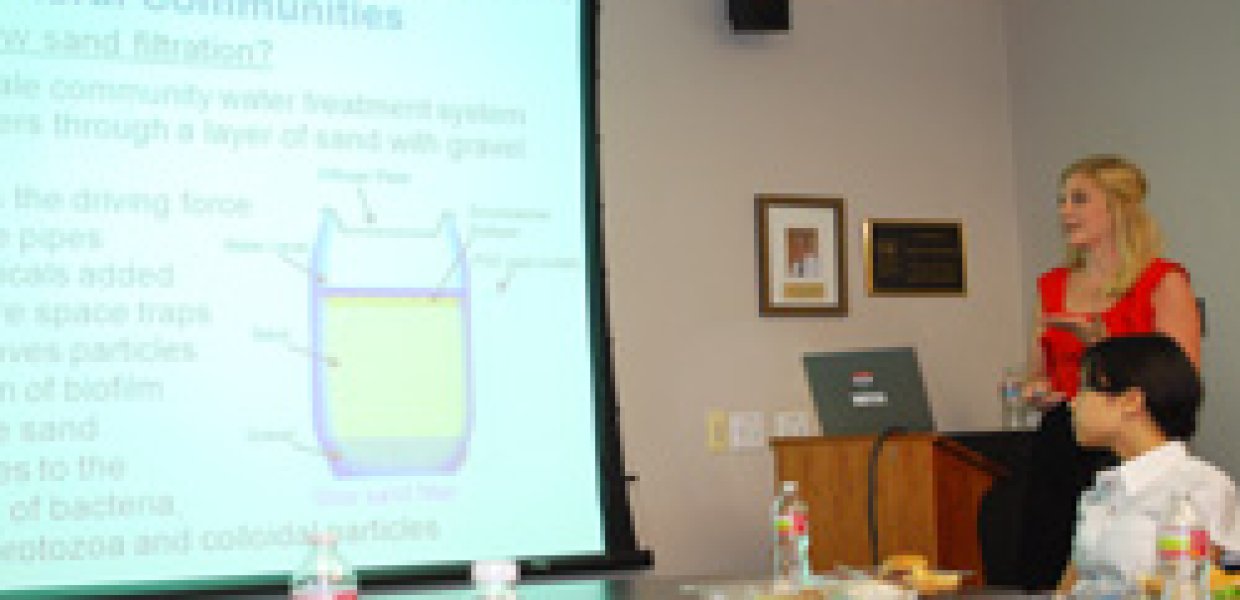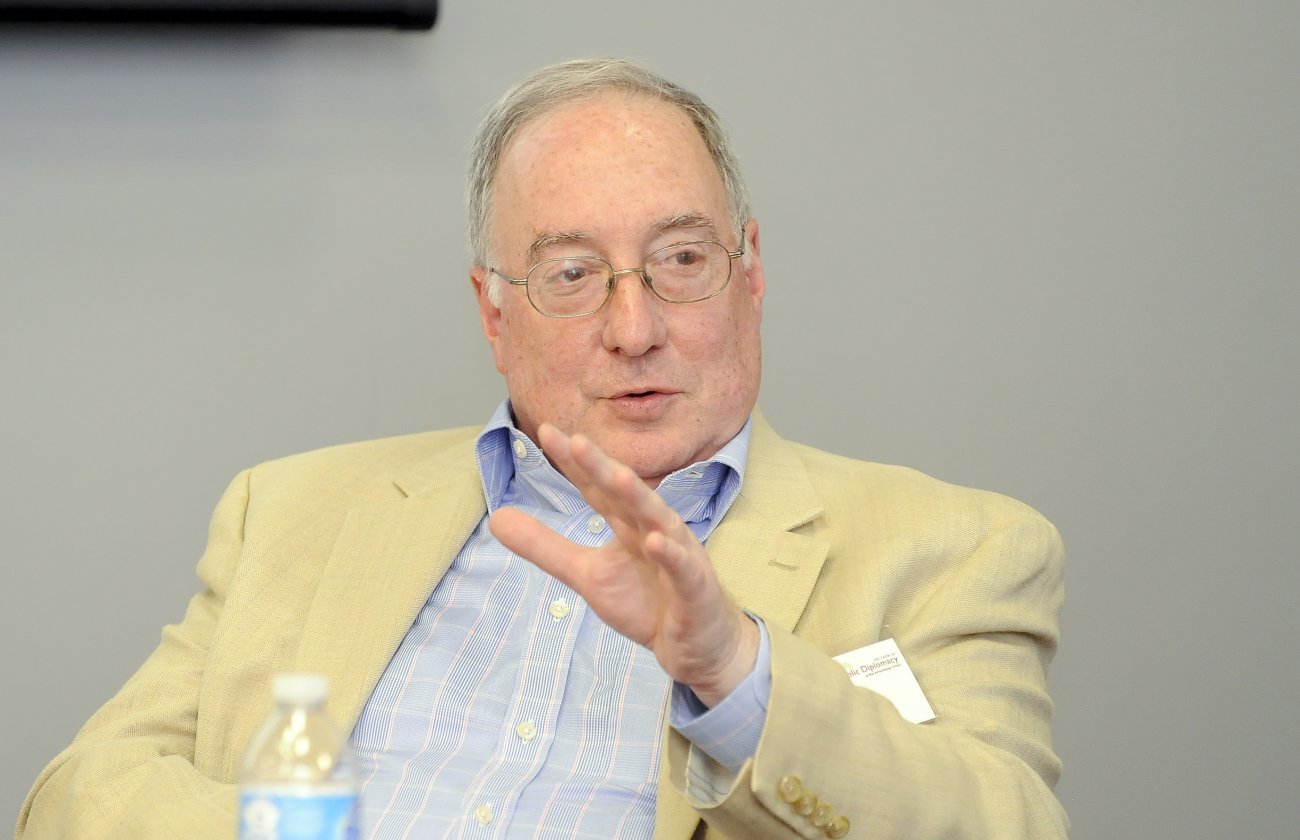The Center on Public Diplomacy at USC Annenberg hosted engineering professor Mike Pirbazari and undergraduate students to explain their Safe Water for All Nations (SWAN) project and discuss how public diplomacy and engineering intersect. Naomi Leight, CPD’s assistant director for research and publications, said less than 1 percent of fresh water is available for drinking and one in six people do not have access to this clean water. Leight said public diplomacy and safe water practices can benefit from each other. "A foreign public will be much more amenable to a country that provides its people with access to clean water, sanitation and technical training than with provision of weapons or hard power tools," she said. Pirbazari and students Kristen Rice, Kristen Sharer and Viv Pitter built and tested slow sand filters to see how effective they are at ridding water of harmful bacteria and toxins. A microfilm layer of bacteria formed at the top and the sand clean the water as gravity slowly pulls it through the system. They found, along with other students Cara Magnobosco, Hannah Gray, Charlotte Chan, Mariah Gill and Lillian Ware, that the system did make the water safe to drink. Another student, Aditi Yokota-Joshi, presented a different project that focused on purifying uranium-contaminated water after a nuclear disaster, and she found bacteria also eliminated the harmful compound from the water. Pirbazari and the students agreed their research is not valuable unless the technology is implemented into areas that are suffering from lack of clean water. "At least from my experience in South Africa there was a big need for safe water awareness because they really did drink straight from the water," Rice said. "So I think if we could spread education that would be really important, but then if we could also help provide the safe water through these filters that cost nearly nothing to make." The students also said public diplomacy would be useful to teach communities how to build the filter systems themselves and eliminate confusion surrounding which systems are best for specific populations and their kind of water pollution. This event started CPD's Water Diplomacy Initiative, which will result in academic publications, a Feb. 27 conference on water diplomacy, a briefing in Washington and research.
CPD and engineering students discuss clean water technology and diplomacy
November 15, 2011
Updated May 2, 2023 10:14 a.m.







